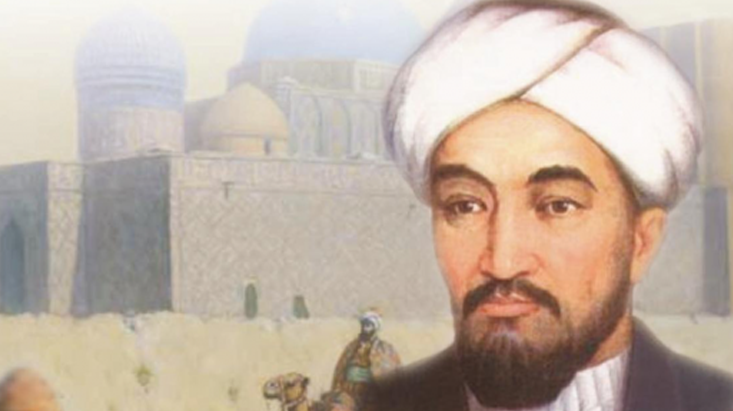Abu Nasr Al-Farabi: “The second teacher” after Aristotle

In 2020, the 1150th anniversary of the great Kazakh philosopher Abu Nasr Al-Farabi (870-950 AD) is celebrated all over the world under the auspices of the government of Kazakhstan and UNESCO. Al-Farabi is a founding figure of philosophy in Arab culture, which made him famous as the “Second Teacher” after Aristotle.
Arabic-speaking philosophy was significantly influenced by ancient Greek philosophy. Al-Farabi created a whole encyclopedic system, similar to the Aristotelian teaching. He wrote about 160 treatises covering all branches of knowledge known at that time: politics, psychology, ethics, natural science, aesthetics, logic and, of course, philosophy. His main works survived and are kept in the best libraries in the world: in Cairo, Istanbul, Beirut, London, Berlin, Paris, Bratislava, Moscow and St. Petersburg.
Arab scholars and thinkers Al-Biruni, Ibn-Sina, Ibn-Rushd, Ibn-Badj, Ibn-Tufeil and many others considered themselves to be al-Farabi’s disciples. Ibn Sina said that he understood Aristotle’s Metaphysics only with the help of al-Farabi’s comments. Ibn Sina’s medical work was highly regarded in Europe throughout the Middle Ages. Ibn Rushd was known in Europe under the name of Averroes. Ibn Rushd developed al-Farabi’s idea of the superiority of philosophy over religion, reason over revelation, laying the foundations of the doctrine of the duality of truth. Ibn-Badja was also influenced by the philosophy of al-Farabi, in his work “On the way of life of the secluded” he writes about the important role of knowledge in achieving ethical perfection. Ibn-Tufayl in “The Novel about Hayy, the son of Yakzan” develops the idea of al-Farabi about the perfection of the philosophical way of knowing the truth.
Speaking about the influence of al-Farbi on European philosophy, first of all, should be mentioned the Jewish philosopher, theologian Maimonides, whose work “Guide to the Losts” contains the ideas of al-Farabi. Through Maimonides, a thread can be traced in the history of philosophy, leading from al-Farabi to Spinoza, D. Scot, R. Bacon. The English monk and philosopher R. Bacon, who spoke Arabic, studied the works of al-Farabi in originals. During the Renaissance, Europe regained the “treasures” of classical ancient Greek philosophy and al-Farabi’s merit is of no small importance in this. Al-Farabi is one of the key figures in the history of intellectual thought that influenced the development of world civilization. His legacy has contributed to the establishment of dialogue and the convergence of the cultures of East and West. The topic of the dialogue between East and West remains relevant to this day. A dialogue strategy seems to be the only correct one for strengthening solidarity and mutual understanding in the modern world.
Al-Farabi was born on the territory of present-day Kazakhstan. He studied in Farab, Bukhara, Merv, Baghdad and Harran. Among his teachers were not only Muslims, given that he also studied with Nestorian Christians such as Juhanna (John) ibn Hailan. Al-Farabi was a polyglot and this enabled him to study Greek, Syrian and Persian cultures. He lived in Baghdad until about 932. The last years of his life he spent in Damascus, Aleppo and Egypt.
He introduced the concept of a world state, a concept that is especially relevant in our time. It is noteworthy that at the same time he observed full respect for each culture and tradition, and the concept of tolerance defines and follows from his political and philosophical views.
Al-Farabi’s work highlights one not-so-well-known aspect of Greek culture’s influence: its expansion to the East. The gaze of the modern Greek is directed mainly towards the West, ignoring a large part of the planet, both in terms of population and territory. Al-Farabi began his research path in the distant steppes of Kazakhstan, where, having felt the Greek thought, he got the opportunity to continue working in the large spiritual centers of Persian and Arab culture, where Greek philosophy and science occupied a prominent place. With his writings, he made a decisive contribution to the revival of Greek thought in the Arabic-speaking world, which stretched from the Pyrenees to the borders of China.
Al-Farabi remains an actual philosopher, whose work contributes to the greatest extent to understanding globalization and increasing tolerance in all aspects of socio-political life. His life and work show that Greek civilization is the thread that connects the two worlds, East and West.